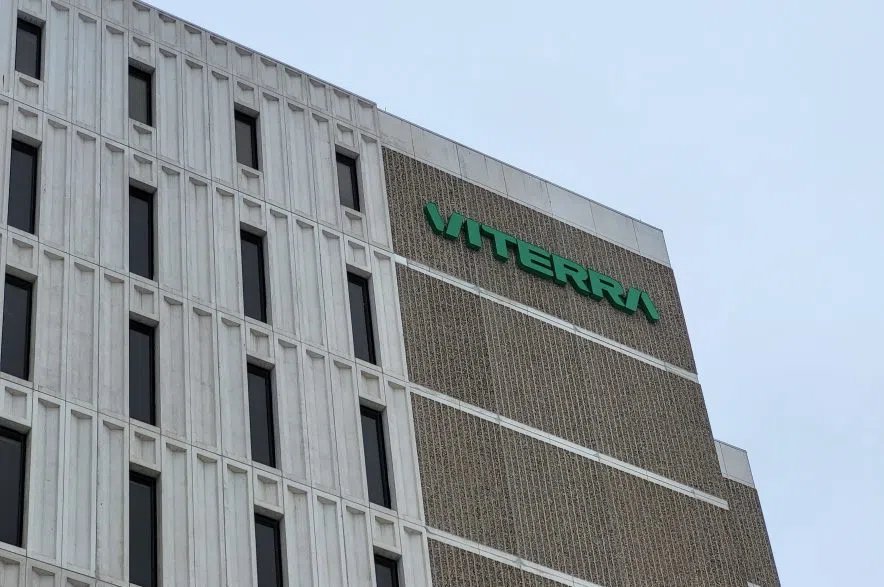The Grain and General Services Union’s Locals 1 and 2 announced Friday they had suspended the strike notice they gave to Viterra as members prepare to vote on the company’s final offer.
In a post on its website, the GSU said the employees will be working to rule during the ratification process. The locals represent 436 employees across Saskatchewan and at its Regina head office.
According to the union, local bargaining committees met with Viterra representatives on Wednesday and Thursday, along with a federally appointed mediator. The union issued 72-hour strike notice on Tuesday.
The union said the company presented a second final offer to the bargaining committee Thursday evening. The GSU said the company’s first final offer was rejected by union members in November.
Union representatives took the second offer to the members on Friday morning.
“At their meeting this morning, Local 1 and 2 elected officers decided that the company’s January Final Offer was different enough from the November Final Offer that members should decide on it for themselves,” the post said. “Accordingly, they have decided to take the January Final Offer to members for a vote.”
In a media release, the union said the locals — representing country operations and maintenance and head office employees, respectively — had decided to “suspend the previously announced strike action.” That was scheduled to begin Friday at 2 p.m.
“After careful consideration, union officers have determined that it is in the best interest of the members to allow them the opportunity to vote on the company’s final offer,” the release said.
“Union officials acknowledge the frustration among members and have decided that, during the period leading up to the ratification vote, employees will not be on legal strike but will engage in a ‘work to rule’ approach. This means members will strictly adhere to work-related rules and procedures without undertaking any additional work beyond their contractual and legal obligations.”
The union said voting will occur “in the coming days,” with ballots to be counted on Jan. 19.
Steve Torgerson, the union’s general secretary, said members were hoping to reach a negotiated settlement, but that didn’t happen even with the mediator’s assistance.
Torgerson said that even with the new offer, members were adamant that they wanted to do something to show the frustration they had been feeling, which led to the work-to-rule decision.
“They will work hard, they will work safe, but they will not go above and beyond,” Torgerson said. “They will not work on our time off, they will refuse voluntary overtime, and they will not be answering their phones unless they are on standby or scheduled to work.”
Viterra also issued an update, saying the proposed deal covers four years and includes salary increases of 4.5 per cent in the first year, 3.75 per cent in the second and 2.5 per cent in each of the third and fourth years.
The company noted the salary increases proposed by the two sides differed in each of the first two years, but the four-year totals were identical at 13.25 per cent.
“We believe that we have provided an offer that is fair and reasonable, one that takes into account the needs of our employees, while balancing the needs of our business through long-term labour stability,” Jordan Jakubowski, Viterra’s vice-president of human resources, said in the company’s release.
“Throughout this process, we have been committed to bargaining in good faith, in keeping with our long history of working fairly and respectfully with our employees.”
However, the statement noted the company will continue to monitor the union’s actions “and will strongly consider implementing a lockout should the union take any action that disrupts the company’s business activities between now and then.”
Torgerson said employees have had issues with Viterra’s pay system for more than 15 years, but the frustration has really risen over the past 12 months.
“Our collective agreement does not have a wage increase that members can rely on and that’s not acceptable,” he said. “People need to know that if they have a wage increase coming in, that they can rely on it and members have been adamant about that.”
Torgerson also cited issues such as lack of shift notice, and long and irregular hours.
“You are loading cars tonight and it might start at 10 p.m. tonight and it might take until noon the next day,” Torgerson said. “And you just have to adjust your schedule appropriately and your sleep schedule, your work or your family life. You have to adjust that to get the job done. And it’s not acceptable.”
According to Viterra, contingency plans are in place to minimize any disruptions to customers caused by a strike or lockout.











